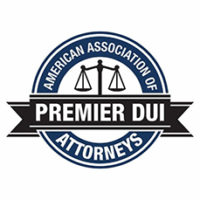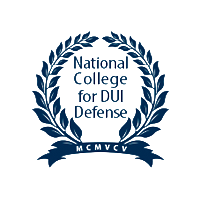BEING INVESTIGATED AND ARRESTED FOR OPERATING WHILE INTOXICATED (OWI) IS A MAJOR UPHEAVAL TO PEOPLES LIVES./
No one wants to be jailed, pay court fines, jail fees, lose their driver’s license, or have derogatory marks on their record. Unfortunately, being arrested and charged with an OWI has major consequences and should not be taken lightly. However, being charged does not necessarily mean that you will be convicted. Keep in mind that unless you enter a plea of guilty admitting to the charge, the state prosecutor must then prove every element of their case beyond a reasonable doubt. At Hall Law Firm, PLC, our criminal defense attorney, Brett P. Hall, can contest the OWI charge and any evidence used to support it. Mr. Hall can challenge multiple on-scene tests, as these tests are not above challenge, nor are the accusations of an arresting officer.
In Iowa, if a person is driving under the influence of alcohol and meets the OWI criteria, then that person is charged with Operating While Intoxicated (OWI). Some states refer to this criminal charge as Driving Under the Influence (DUI) or Driving While Intoxicated (DWI). Every state’s OWI, DUI, or DWI laws are different, so it is imperative to contact an attorney who is well versed in your states legal system.
In Iowa, for instance, a conviction for Operating While Intoxicated (OWI) requires the prosecution to prove at least two elements to secure a conviction:
- The convicted person operated a motor vehicle, and;
- At the time of operation, the person was either:
- Under the influence of alcohol/drugs, or;
- Had a blood alcohol content over .08, or;
- Had any controlled substance present in their system.
Nebraska also has strict laws against driving while intoxicated (DUI)
Under Neb. Rev. Stat. §28-106, penalties for misdemeanor DUI offenses vary depending on prior offenses and may include not only imprisonment but also substantial fines. In Nebraska, DUI offenses may be prosecuted as felonies when the driver involved has had three or more prior DUIs.
The sentences for various misdemeanors under Neb. Rev. Stat. §28-106 are as follows:
- Class W misdemeanor: Driving under the influence (DUI) or implied consent
- First conviction:
- Maximum: sixty days imprisonment and five hundred dollars fine
- Mandatory minimum: seven days imprisonment and five hundred dollars fine
- Second conviction:
- Maximum: six months imprisonment and five hundred dollars fine
- Mandatory minimum: thirty days imprisonment and five hundred dollars fine
- Third conviction:
- Maximum: one-year imprisonment and one thousand dollars fine
- Mandatory minimum: ninety days imprisonment and one thousand dollars fine
- First conviction:
Temporary Restricted License:
Relying on others to help you get around while your license is suspended can take a toll on you, your family, and your friends who may need to assist you in getting to appointments and work. If you are an Iowa resident and your Iowa driver’s license has been revoked, suspended or barred, you may be eligible for a Temporary Restricted License (TRL). Teenage and underage drivers may also receive these licenses to drive to and from home, school, or work. A TRL allows you to drive for specific reasons and during specific times, however
What is a restricted license?
 A restricted driver’s license may be an option for some drivers as an alternative to having a suspended driver’s license. People with a restricted driver’s license can operate a vehicle within certain guidelines, while drivers with a suspended license are not able to drive at all. Generally, people with a restricted license will be limited as to where and when they may drive, or they may be required to have an ignition interlock device installed to operate their vehicle. Handled on a case-by-case basis, restricted licenses are not available in all cases and often you must prove that a restricted license is necessary before it is granted. There are penalties if you break any of the guidelines set by your state, including incurring more fines, losing your driving privileges, additional time with an interlock and potential jail time.
A restricted driver’s license may be an option for some drivers as an alternative to having a suspended driver’s license. People with a restricted driver’s license can operate a vehicle within certain guidelines, while drivers with a suspended license are not able to drive at all. Generally, people with a restricted license will be limited as to where and when they may drive, or they may be required to have an ignition interlock device installed to operate their vehicle. Handled on a case-by-case basis, restricted licenses are not available in all cases and often you must prove that a restricted license is necessary before it is granted. There are penalties if you break any of the guidelines set by your state, including incurring more fines, losing your driving privileges, additional time with an interlock and potential jail time.
You may be granted a restricted driver’s license to:
- Travel to and from work
- Travel to doctor’s appointments
- Travel to court appearances and counseling appointments
- Transport a dependent to school or another caregiver
If your license is restricted due to driving under the influence of alcohol, an ignition interlock device (car breathalyzer) may be required to be installed in your vehicle before you can drive. Hall Law Firm, PLC, can help you navigate the often-confusing laws and regulations involving these devices.
Ignition Interlock (BAIID, IID, or interlock system):
If you have been convicted of an OWI or DUI, you likely will be required to install an ignition interlock device in your vehicle, even for a first offense. An ignition interlock device, often referred to as a car breathalyzer, is a small, hand held breathalyzer that is installed in your car. The device is equipped with a mouthpiece that you will blow into before starting your car. Once a breath sample is obtained by the device, it then determines your alcohol content. With a clean breath sample, you will be able to start your car as usual.
You are required to pay for the installation of the ignition interlock device on your vehicle, and there are also continued monthly fees. Clients of Hall Law Firm, PLC, may receive discounted pricing coupons with Smart Start, Intoxalock, and Alcolock devices which serve both Iowa and Nebraska. Although an ignition interlock device can be extremely restrictive and costly, most people feel it is a better option. More information on this can be found in the respective links below.
https://www.smartstartinc.com/
https://alcolockusa.com/locations/iowa-ignition-interlock/sioux/
Specialized Training:
OWI attorney Brett Hall has attended training developed by the National Highway Traffic Safety Administrations (NHTSA) regarding Standardized Field Sobriety Testing (SFST). This training, used to train police officers in the detection of impaired drivers, teaches students to understand the tasks and decisions involved in identifying the intoxicated driver, OWI detection process, and the effects of OWI enforcement. It covers the three standardized field sobriety tests: 1) Horizontal Gaze Nystagmus; 2) Walk and Turn; and 3) One Leg Stand.
The class instruction teaches students how to administer the three NHTSA standardized field sobriety tests, the typical clues of intoxication by alcohol, divided attention testing, and scoring protocols SFST validation studies. This education equips Mr. Hall to better analyze and identify potential testing errors by police officers regarding the administration of the field sobriety tests. Mr. Hall has also attended the BAC Data Master training, otherwise known as the DMT breath testing device used in OWI/DUI investigations. This training aids OWI attorney Brett Hall in assessing and scrutinizing breath test reports for errors or outliers.
Brett Hall’s OWI/DUI Trainings include:
- Digital Forensics for Attorneys, presented by the State Public Defender’s Office, April 15-17, 2015
- Avoiding and Resolving Discovery Disputes, presented by the US District Court – Northern District of Iowa, June 25, 2015
- National Highway Traffic Safety Administration of Chiefs of Police Standardized Field Sobriety
- Advanced level training, from the American Association of Premier DUI Attorneys, on how to use information from medical staff to win DUI cases. Click here to learn more about this training.
- Testing Practitioner Student Course (2015 curriculum) – May 6-7, 2016
- Cross Examination of Law Enforcement in OWI Cases – July 29, 2016
- Effective Cross Examination – February 17, 2017
- Defending a DMT Case without an expert – March 17, 2017 (Datamaster and breath testing)
- Winning OWI Cases, Cross Examining Police Officers in OWI cases, put on by Your DUIPro – October 19, 2017
- Ignition Interlocks as a Behavior Modification Tool, presented by Intoxalock, December 7, 2017
Many people’s OWI/DUI/DWI is there first, and it can be a scary and stressful time. Often people have many questions about what may happen to them. Common questions may include:
- Should I go to trial?
- What will I be required to do?
- How much will an OWI or DUI cost?
- Would a guilty plea be recommended?
- Are field sobriety tests required?
- How will I get to work?
- When will I get my license back?
- Can I refuse consent for a blood test or urine sample?
- Will my employer know about my arrest?
- What if the officer never read me my rights?
- Will I go to jail?
- Can I travel if I have been charged with an OWI or DUI?
DEFENSES
- As a general rule, law enforcement must have an articulatable reason to pull you over. Officers must have legitimate basis to make a traffic stop. Motorists can be pulled over for various reasons, be it an equipment violation, traffic violation, or driving behavior that might indicate the person is impaired.
- Officers are required to observe signs of intoxication or impairment to begin an OWI/DUI/DWI investigation. When the prosecutor does not have evidence such as breath, blood, or urine samples, they must rely on the observations of law enforcement on scene, as dictated in their report. Officers will often report odors, slurred speech, visual conditions of the driver, and whether they appeared nervous or fidgety. Officers will also conduct field sobriety tests and assess the driver’s results in their report.
- Law enforcement must follow strict, standardized procedures when requesting a sample of breath, urine, or blood to determine the driver’s Blood Alcohol Content (BAC). Generally, prior to requesting a DMT Datamaster breath test at the police station, the arresting officer must read a detailed warning and advisory, called an implied consent, about the consequences of providing a breath, urine, or blood specimen. The arresting officer should then give the driver an opportunity to phone family, friends, or a lawyer. Once the arresting officer has concluded his or her OWI/DUI/DWI investigation, if they have determined the driver to be intoxicated or impaired, the driver will then be placed under arrest for OWI/DUI/
It is important to retain an attorney that understands proper procedure and protocol pursuant to an OWI investigation, so that the attorney may identify errors. Getting in touch with an OWI attorney, in the Sioux City area, immediately is the best way to protect yourself and your rights.
Client Testimonial
”Very prompt and professional service. Fantastic results!” – Chad Marcotte (Google Review)

 At Hall Law Firm, P.L.C., we handle criminal defense cases. We understand that this may be a difficult time for you, and we can help. Whether you are seeking a criminal defense lawyer or simply want sound legal advice from a professional who knows your constitutional rights, contact us to learn more about what we can do.
At Hall Law Firm, P.L.C., we handle criminal defense cases. We understand that this may be a difficult time for you, and we can help. Whether you are seeking a criminal defense lawyer or simply want sound legal advice from a professional who knows your constitutional rights, contact us to learn more about what we can do.



